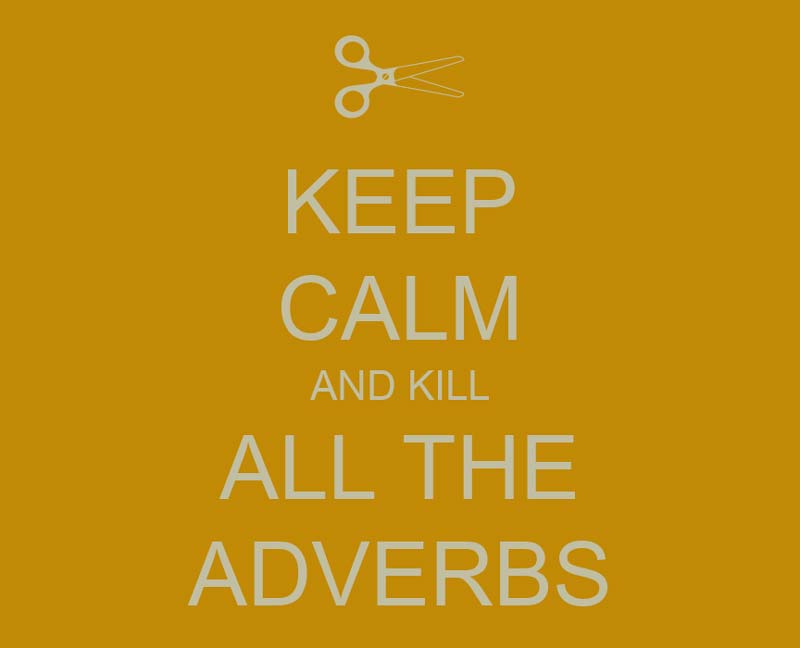
This is part two of a three-part series on Storytelling Tips. Also see:
• Part 1: Creating compelling characters for your novel
• Part 3: Premise: What your book is really all about
One way of splitting novelists into two camps is between storytellers and stylists.
Storytellers are all about the tale. A stranger comes to town. Boys meets girl. The monster under the stairs. A journey of discovery.
Stylists are all about the telling. Just the right word to end that sentence. A metaphor that’s just so right. A feeling conjured out of a misplaced item on a lady’s dresser.
Like all such binary divisions, it’s really picking two points on a spectrum and dividing them from each other as if they were mutually exclusive. It’s a common misconception and finds wide currency in some of the snobbier neighbourhoods of Writersville.
You know the kind of thing.
‘‘Oh, well, if you’re only interested in escapism, Wally’s books are perfect. Of course,’’ she added in a whisper, ‘‘he can’t actually write.’’
And in some of the town’s low dives.
‘‘Yeah, I tried one o’ her books,’’ Rick said, sinking his fifth Bud. ‘‘Fine writin’, no doubt, but man, nothin’ happens!’’
But it’s entirely possible to be a red-hot storyteller and a superb stylist. A writer of gripping, thrilling stories full of romance, drama and tension who can also leave people shining-eyed at the liquid poetry of their writing.
It just takes a little work.
‘Why are you repeating yourself? I say, I say, why are you repeating yourself?’
Repetition is a key component of rhetoric. Repetition can help drive a point home. Repetition, done right, is a storyteller’s weapon.
But what about when it’s not done right?
In a 60,000-, 70,000-, 100,000- or 300,000-word manuscript, you’re going to repeat yourself. It’s inevitable. You’re going to repeat yourself in three different ways. Only one of which doesn’t matter.
You’re going to repeat common words. The. She. Ran. Dog. Drove. Bullet. Kiss.
Not a problem. Their everdayness means your reader will absorb the meaning from them as if they were rice paper on the tongue. A moment’s existence then they’re gone.
You’re also going to repeat less common words. Maybe words for which you have a particular fondness. Quirk, for example.
Not ‘‘quirk’’ as a noun. An idiosyncrasy that defines one of your characters in a form of visual or verbal shorthand. A mono-brow, for example. Or a habit of tagging, ‘‘Know what I’m sayin’?’’ onto every declarative sentence.
But ‘‘quirk’’ as a verb. Always used like this: ‘‘Her lips quirked upward.’’ It’s generally used to mean a sort of squiggle-shaped smile. Where more than simple pleasure, happiness or good humor lies behind it.
Used once it’s OK, but 5, 10, 20, 50 times? Even with variations? Nope. Not good enough.
The third type of repetition is the repeated phrase. Nothing wrong with that in the first draft. Just as there’s nothing wrong with any kind of error in the first draft. You could make a pretty compelling case for saying that’s what first drafts are for.
A writer reports his editor picking up on his use of the phrase ‘‘spectral birch trees’’ five times within thirty pages.
Another how her first reader became distracted by the number of soft furnishings in her characters’ homes colored a ‘‘faded off-white.’’
A third how her military adviser had to warn her that while ‘‘burning through mags like Fourth of July firecrackers’’ might indeed be a feature of firefights, it nevertheless began to grate after the third appearance.
Tip: For a powerful emotional effect, repeat the same word or phrase at the start of three sentences.
Lance took Jilly in his arms.
He kissed her, and the doubts of the previous year melted like spring snow.
He kissed her, and the steel bands constricting her heart shivered and broke.
He kissed her, and love, once a hopeless dream, awakened in her heart.
Clichés: The overworked servants in the writer’s mansion
Most writing guides will have a section on clichés. Usually including, very near the beginning, a sentence that runs thus:
Now, we all know that we should avoid clichés like the plague.
Oh, how clever! How deliciously ironic! He’s actually using a cliché to demonstrate when not to.
But, of course, this line is now a cliché itself. And therefore to be avoided like the … well, you know.
Clichés appear in both narrative and dialogue. The latter is more forgivable, since dialogue is supposed to be a naturalistic rendering of the way real people speak. And, for good or ill, real people use a shit-ton of clichés.
But beware of giving in to the temptation to justify sloppy dialogue this way. Whether enclosed in speech marks or not, those little bleeders will ping against your reader’s subconscious, lessening the impact of the point your character is making.
Where clichés are less forgivable (if at all) is in narrative. This time, you can’t employ the defence that ‘‘It weren’t me, guv, it were me characters.’’
If you write, ‘‘Arguing with Eleanor was like nailing jelly to a wall.’’ Or ‘‘Tim thought getting the kids ready for school was only marginally easier than herding cats.’’ Or ‘‘Sgt. Rock was built like a brick outhouse.’’ Or, an all-time favorite, not least of Elmore Leonard, ‘‘All hell broke loose’’ … then you are being lazy. Sorry, kids, but there it is. These are the well-worn, comfortable, threadbare phrases that spring readily to mind because everybody’s always using them.
In his essay Politics and the English Language, George Orwell cautioned that the careful writer should, ‘‘Never use a metaphor, simile or other figure of speech which you are used to seeing in print.’’
Leaving aside that unfortunate ‘‘which’’ (‘‘that’’ is required), it’s an excellent piece of advice. For, as Orwell says earlier in the same essay, there is ‘‘a huge dump of worn-out metaphors which have lost all evocative power and are merely used because they save people the trouble of inventing phrases for themselves.’’
Clichés undoubtedly belong in that dump.
Tip: If you ever find yourself writing, ‘‘Then all hell broke loose,’’ delete it. Now describe precisely what flavor, size, texture, sound and smell of hell breaking loose you meant.
Hell breaking loose after a drunken argument at a suburban barbecue is going to be radically different from hell breaking loose after a psycho nurse spikes the pre-nap milk with LSD at a kindergarten.

Vigorously cut adverbs and adjectives
In amplifying verbs, adverbs seem to be earning their wages. Same goes for adjectives. When we write, ‘‘He sat down heavily,’’ in a chair, we’re giving the reader more information than if we just typed, ‘‘He sat down.’’ Aren’t we? He didn’t just sit down, he sat down heavily. Because he was dog-tired.
But hold on. Maybe he didn’t sit at all. Maybe he folded. Slumped. Or even collapsed. And what was he folding his weary frame into? Merely a recliner chair? Or a La-Z-Boy? Or an Eames? You can tell a lot about a guy from the chair he collapses into at the end of a hard day. Something from which foam the colour of nicotine spills through splits in the arms? Or that wouldn’t look out of place in the Museum of Modern Art?
The general point here is that adverbs and adjectives allow us to move at pace, focusing on our characters and what they do, not slowing every two or three words to think about what kind of chair it is or what flavor ice cream. And you know what?
It’s all fine! In. The. First. Draft.
But when you rewrite, these are the words that betray your breakneck hurtle through the story at the expense of the style.
But let’s go a little deeper. Take your protagonist’s house. It’s big. Fine, so it’s a big house. That ‘‘big’’ does one job, indicating size. But let’s be honest, it does it poorly.
How else could you describe a big house and give your reader a flavor of what kind of big?
You could only do it with more well chosen nouns. A Victorian. A hacienda. A mansion. But maybe a more interesting, information-rich adjective is your friend here.
A three-story Victorian. A sprawling hacienda. A dilapidated mansion.
Now your adjectives allow your reader to picture the three dwellings. The Victorian looks spooky. The hacienda suggests a looseness. The mansion might have an old dame in a tatty wedding dress sitting alone in the drawing room.
Tip: If you have used a verb-adverb combination, try to find a single, more evocative verb that does the job on its own. A character doesn’t walk quickly, she bustles. A long-married couple don’t argue quietly through dinner, they bicker. Or maybe they snipe at each other from behind the cover of their menus.
How Marlowe helps you fine-tune your language
Marlowe, the A.I. assistant for writers created by Authors A.I., analyzes your manuscript, looking for repeated words and phrases, use of clichés, and adjectives and adverbs.
She’s not judgy, wagging her finger at you. It’s your book, after all, and she respects that. What she does is to show you those words and phrases that pop up more than once. After that, like with all her charts and tables, it’s up to you.
A fascinating feature of the report is the way she not only lists potential clichés and repeated words and phrases, but compares your use of them with best-sellers.
Why not give your reader style and substance?
At the beginning of this article, we looked at two tribes of writers: the storytellers and the stylists.
All story, no style and you have the buzz and instant hit of a chocolate Pop Tart or a lottery scratchcard. A story that grabs your reader for as long as they’re reading, but once consumed leaves little trace of its ever having existed. (Unless you hit the jackpot, of course.)
All style, no story and you have the sensorily rich experience of a leisurely river cruise on a scorching summer’s day. During which you may frequently fall asleep owing to nothing ever happening!
Tell a gripping story in evocative language and your writing is more likely to win reader satisfaction, sales and critical acclaim.
Interested in checking out the free version of Marlowe? Check the Marlowe Basic page or compare the different plans.






